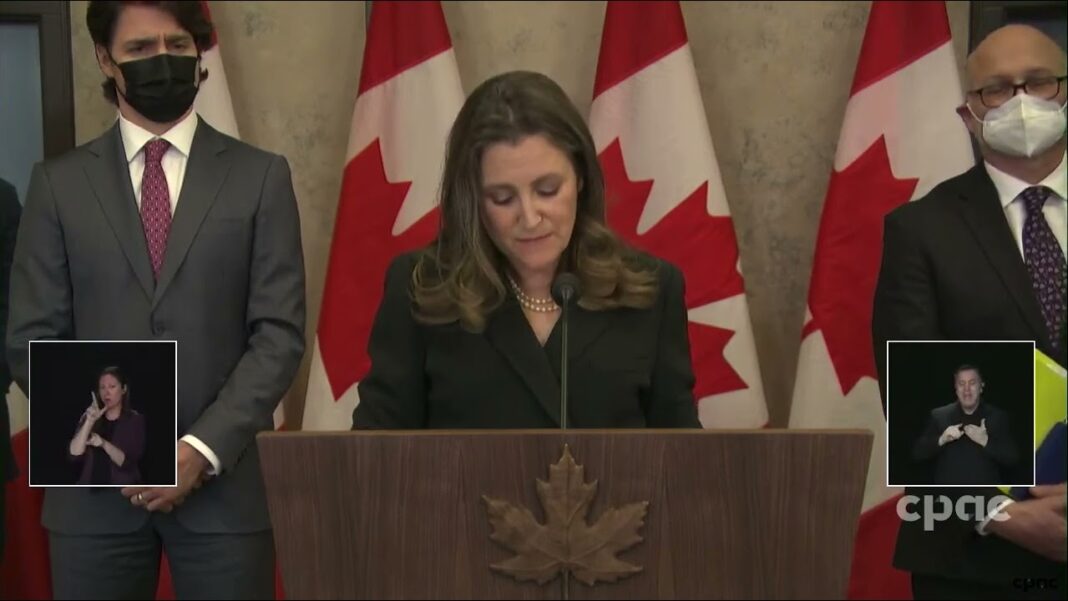
After months of delay, the Department of Homeland Security (DHS) replied late last month to a Congressional demand for information about the number of illegal migrants the department has flown from border towns to communities around the country. In 2021, it said, 71,617 were dropped off in nearly 20 cities including locales as far from the Mexican border as Atlanta, Chicago, New York, and Philadelphia.
Immigration experts critical of the Biden administration’s permissive immigration policies believe those numbers are incomplete, especially regarding the most vulnerable migrants, those under 18, whom DHS classifies as “unaccompanied children.” The agency says some 40,000 of the total transported are such minors, but that number is only a fraction of the 147,000 “encounters” the agency reports having with unaccompanied migrant children at the southern border between January and October 2021.
Paramount among the questions raised by the transports is what happens to the unaccompanied children once they leave the airport? The major cities DHS lists, the experts say, are probably simply way stations rather than final destinations.
“Everyone wants to know where they’re going, but nobody knows,” said Todd Bensman, a national security fellow at the Center for Immigration Studies, a Washington-based think tank. “Well, somebody knows,” he adds. “The government knows. But they are being as opaque and ‘darkened-windows’ as they can be about the entire matter.”
The lack of information raises a host of questions regarding the health and welfare of the children, and more:
What security checks are being performed—and background checks to ensure these minors are going to safe homes? How can checks be conducted on family members in the U.S. illegally who wind up taking custody of the children (a problem highlighted in a 2019 study)?
What processes are in place to ensure that these children have enough to eat, are receiving any necessary medical care, or are enrolled in school?
What traumas or crimes have they suffered along the way, at the hands of human traffickers, for example, and how are the cases being handled? (Through a public records request, Judicial Watch last year obtained a list of 33 incidents of alleged sexual abuse in a one-month period in 2021.)
What pandemic precautions have been taken, beyond masks seen in some furtively taken images of the transportees, by an administration that professes to be aggressively dedicated to eradicating COVID-19? (Illegal immigrants dispersed on commercial flights in 2021 were not tested for covid, and agencies did not follow preventive procedures, according to preliminary findings of a DHS Inspector General’s report reviewed by RealClearInvestigations.)
Who is responsible for making sure the migrants, children in particular, check in with the government and show up for court immigration hearings?
The difficulty of getting answers from the Biden administration is frustrating many state and local officials who say that tracking the thousands of illegal immigrants apparently melting into their communities is a maddening endeavor.
“The Biden administration is running a clandestine, covert, middle-of-the-night, special ops mission using the same tradecraft the military does in operations against foreign enemies,” said Larry Keefe, a senior policy adviser to Florida Republican Gov. Ron DeSantis. “We don’t know what’s going on because the states are not designed to mount intelligence-gathering operations against our own government.”
The situation is complicated by the layers of groups involved. After a gumbo of federal agencies–CBP, DHS, DHHS, ICE, ORR–the government largely relies on nonprofit contractors to handle unaccompanied minors. While those groups present a rosy picture on their websites, it is unclear how they can handle what has proved a massive increase.
In 2021, DHS shelters near the border and further inland took in 122,000 unaccompanied children, according to its figures, which shattered the previous record of 69,000 in 2019. The unaccompanied children are but a portion of the illegal immigrants who flooded across the southern border in 2021. For the fiscal year ending last October, U.S. Customs and Border Protection reported 1.6 million “encounters”—an all-time record and four times the figure the previous year. Although the number of encounters does not equal the number of people who crossed, given that some are repeat offenders, the actual figures are even higher, because CBP does not release the number of “got-aways” it records.
Neither Homeland Security nor Health and Human Services nor the Office of Refugee Resettlement would answer questions about the resettlement process from RealClearInvestigations.
But the huge increase in numbers means the organizations dealing with them are swamped. In many cases, responsibilities for placing unaccompanied children with families or sponsors are subcontracted through the Office of Refugee Resettlement, or ORR. In 2020, the most recent year for which figures were available, under the far more restrictive immigration policies of the Trump administration, taxpayers spent more than $1.5 billion among 42 various non-profit and religious groups that offer help with housing, educational, medical, legal and other services.
More than $1 billion of that 2020 total was paid to six groups. The major recipient, Southwest Key Programs, received $400 million and a global nonprofit called BCFS received at least $253.1 million, according to tracking of ORR contracts by Maya Pagni Barak, a professor of criminology and criminal studies at the University of Michigan-Dearborn.
None of the six groups would answer questions from RealClearInvestigations, instead referring them back to federal agencies in the kind of loop that has bedeviled others seeking information.
“This is all being done under the cover of darkness and no one really knows what is happening,” said Rosemary Jenks, director of government relations at NumbersUSA, a group that favors immigration limits. “Plus, there’s so much confusion over who has custody over which groups.”
The groups handling unaccompanied children have sites scattered across the U.S., according to their websites. Southwest Key, for example, says it runs such shelters in 18 states, while BCFS lists shelters in a dozen states, from California and New York, to Colorado, Illinois, North Carolina, Oregon, Tennessee, and elsewhere. A fact sheet from ICE notes that altogether there are sites for unaccompanied children in 22 states.
Regarding shelter conditions, the operators’ blanket silence beyond rosy website depictions is not a new development. In 2018, when the Trump administration’s border policies were under scrutiny, Southwest Key barred Sen. Jeff Merkley (D-Ore.) from inspecting its Casa Padre facility in a former Walmart in Brownsville, Texas. At that time, Rep. Nancy Pelosi (D-Calif.) declared the system “barbaric.”
In an effort to shed some light on the situation in Florida, Gov. DeSantis issued an executive order in September that told state law enforcement and other officials to begin gathering information on the number of illegal immigrants federal agencies were bringing to Florida and where they wind up.
DeSantis took that step after accusing President Biden of abandoning any pretense of protecting the southern border.
In the face of what Keefe and other Florida officials described as continued intransigence on the part of federal agencies flying and busing illegal immigrants into the Sunshine State, DeSantis has proposed a package of laws now pending before the legislature in Tallahassee that would codify the steps laid out in his executive order. The proposed measures would also “prohibit state and local agencies from doing business with any private entities that facilitate the resettlement of illegal aliens in the state of Florida from the southern border.”
Florida’s Department of Children and Families published an emergency rule in December that directly addresses the various non-profits and religious groups that contract with the federal government. The rule “prohibits the issuance or renewal of any license to provide services to UAC who seek to be resettled in Florida,” unless the state and the federal agencies can craft some “cooperative agreement.”
Keefe said the governor’s moves will also put a crimp in human smuggling. Because the children lack documentation to board international flights from Central American airports and others, someone is paying to have them brought from their country of origin to the U.S. border. These are often criminal organizations that are most likely paid by family members—with whom the children may be eventually reunited—or human trafficking syndicates posing as legitimate sponsors that might exploit them for nefarious purposes.
“We don’t have laws in place to investigate the federal government,” Keefe said. “We’re being kept in the dark by our own country on something that’s definitely contributing to human smuggling because this is about bringing their kids here. Somebody drops the kids off at the border and then HHS is handing off to taxpayers the cost of flying them to illegal immigrant parents.”
Pennsylvania lawmakers are facing a similar situation. Keystone state senators remain dissatisfied with answers they have sought on flights packed with immigrants from the southern border that landed in the middle of the night in Scranton and other Pennsylvania airfields.
In December, there were at least two so-called “ghost” flights into the Lehigh Valley, a tiny fraction of the more than 900 such domestic or “lateral” flights ICE’s air arm flew around the U.S. in 2021.
Republican state Sen. Doug Mastriano and others sought answers from Pennsylvania Gov. Tom Wolf and Attorney General Josh Shapiro, both Democrats. While Wolf said Scranton was simply a transit point, he offered no information on passengers that landed in the early morning darkness in Scranton. In a familiar refrain, the state lawmakers were told to direct their questions to the feds.
Mastriano has now filed a series of FOIA requests of DHS and ICE, but he remains perplexed and angered at the reluctance of those involved in the system to provide clear answers.
“On two flights from El Paso to Scranton there were 120 passengers, many of which were minors,” Mastriano said. “Imagine that. I don’t know who pays for their schooling or the impact on our community, and there is something fishy going on with all of it.”
The scant information that has been provided is unlikely to offer a complete picture, Mastriano told RCI.
“I think these findings are just the tip of the iceberg,” he said. “We need to further examine the total number of illegal immigrants being sent [here] by plane and bus. It’s not just minors they are sending to Pennsylvania, its adults, too.”
By James Varney





